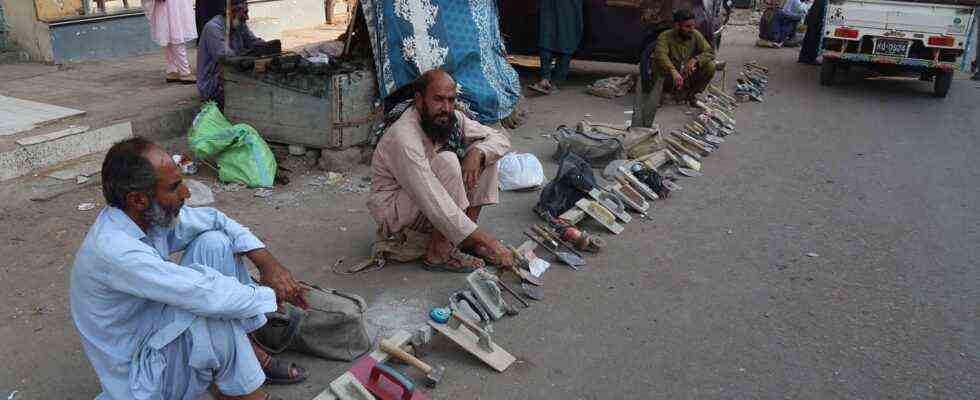Status: 11/10/2021 5:43 p.m.
High commodity prices are fueling inflation around the world. It is rising particularly sharply in Pakistan, and that affects the poorest. The struggle for economic survival is getting tougher. Anger against the government is growing.
Today Tariq Mahmood is lucky, his hairdressing salon is well attended. With quick cuts he trims a man’s long beard. The 36-year-old often misses customers because with rising inflation everyone in Pakistan is trying to save where they can. He took over the business from his father years ago. Now he doesn’t know how to pay the rent.
“We don’t know what’s coming tomorrow,” he says, “I don’t know how to pay the school fees for my children either. I don’t have any money for everyday expenses. We don’t even know if we’ll have enough next week have to eat. “
Economists see Pakistan in a difficult economic situation. In the past three years, the Pakistani rupee has lost almost half of its value against the US dollar, according to economist Talat Anwar of the Center of Development and Public Policy.
A full hair salon has become rare for Tariq Mahmood – a haircut is one of the easiest things to put off.
Image: ARD-Studio South Asia
Care for the children
Cleaning from morning to evening and having to see that some in Islamabad are doing much better than you are: This is what happens to Nargis Josephine, who rushes from job to job for more than twelve hours every day – and yet it is no longer enough for her sick husband and their five children. The rising prices are also bothering her. “Sometimes we have enough to eat, sometimes we don’t have enough money for it,” she says. “But we trust our Creator in everything, he will take care of us.”
The family belongs to the small Christian minority in Pakistan. They often have to do the worst-paid work. The devaluation hits them particularly hard.
“When I work in the rich Muslim houses, I see the children go to school and get an education there,” she says. “They will have good jobs later and be able to support their parents.” She would also like her two younger daughters to receive a good education. Instead, they cannot go to school because the family has no money.
Twelve hours of cleaning are just enough for the bare minimum – Nargis Josephine can only dream of social advancement for the time being.
Image: ARD-Studio South Asia
High commodity prices, high current account deficit
Inflation in Pakistan has recently risen to more than twelve percent. According to estimates by the World Bank, this means for 40 percent of households in the country that there is often not enough money for a daily meal.
The reasons for this inflation lie in the country’s economic problems. Pakistan has a large current account deficit, mainly because of the high raw material prices on international markets, according to economist Talat Anwar. The price of oil has risen dramatically, as has the price of other raw materials that Pakistan imports. At the same time, more food is imported than exported. The rising prices of these imports are also driving inflation in the country.
In October, thousands took to the streets across the country to protest against rising prices. Inflation hits Pakistan in a phase of uncertainty and radicalization. The many Afghan refugees are causing more and more unrest. Islamist parties are trying to destabilize the country.
The help does not arrive
Hairdresser Tariq Mahmood should actually buy a few little things for his hairdressing salon. But there is no money even for a new pair of scissors. The government tries to alleviate the consequences of the devaluation with subsidized food. But he doesn’t notice anything.
He actually expects the government to turn things around for the better, he says, but it makes his life even more difficult. The prices are completely out of control. He has already had to fire employees.
The economic consequences of the pandemic have already deprived the poor of Pakistan from the last reserves. This is one of the reasons why the rising inflation hits them particularly hard.

